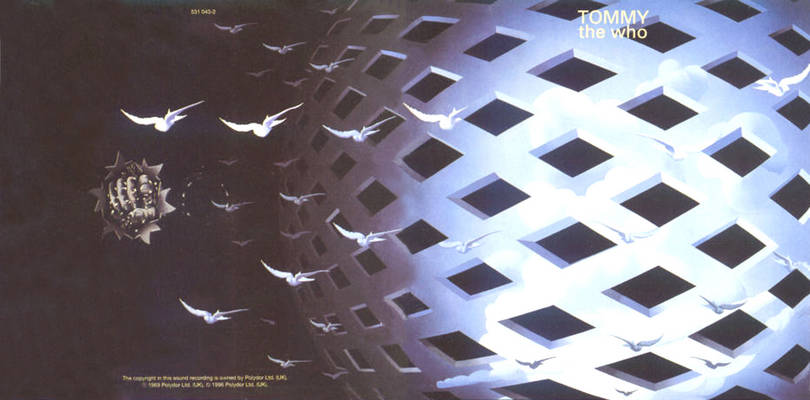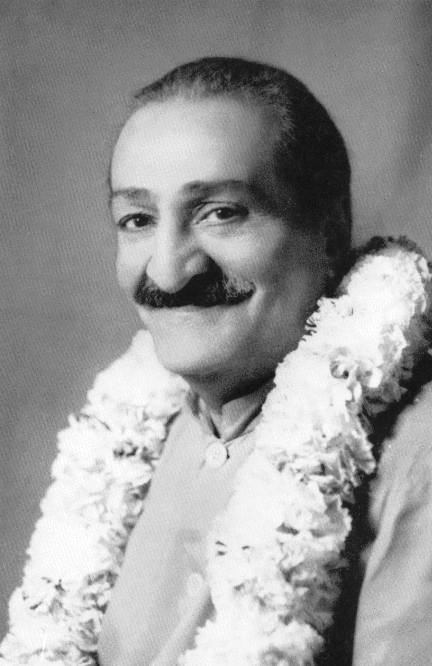| Notes and Quotes: "Overture" |
 Cover design and painting by Michael McInnerney |
| Using an "overture" to open this "rock opera" uses conventional operatic overture conceit in which the principal tunes from the remainder of the opera are briefly presented in succession. |
| Daltry: As a singles band we were really going downhill. Pop fans were fickle and our career seemed to be going down in England. Then Pete came up with a song called "Amazing Journey" and that was the birth of Tommy. The Mod thing was dying so we had to find a new audience in the universities, where the students loved us. Tommy was such a success it pushed us beyond being a singles pop band. (Welch: 57) |
| Townshend: At the time we were writing Tommy, the music business was very super-cynical. For example, at that time, the Moody Blues and people were doing ambitious works (from their point of view, anyway) and they were instantly getting labeled as pretentious, and at the same time, garbage was being pushed out into the charts. The Beatles and the Stones and people like that, the Small Faces, even — anybody that was any good was more or less becoming insignificant again . . . . They weren't new anymore, they weren't fresh and a lot of the new stuff that was coming out was really trash, there was a lot of psychedelic bullshit going about . . . . I wanted to hit everybody all at once. So I did, cautiously, put across a spiritual message because I did feel that I had learned a fantastic amount through my life and perhaps even through dope, which had lead me to Baba, and I knew that Baba was something very special and I wanted that all to be wound up. But at the same time, I wanted Tommy to be rock & roll . . . . I even wanted it to appeal to kids. John Entwistle and I always used to talk a lot about that . . . . We just wanted it to appeal on every level, like a Sufi tale . . . . If you're a seeker, you get something from it, if you're well along the path, you get something from it. (Marsh 311-12) |
 |
| Townshend: Well, the album concept in general is complex. I don't know if I can explain it in my condition at the moment. But it's derived as a result of quite a few things. We've been talking about doing an opera, we've been talking about doing like albums, we've been talking about a whole lot of things, and what has basically happened is that we've condensed all of these ideas, all this energy and all these gimmicks, and whatever we've decided on for future albums, into one juicy package. |
| The package I hope is going to be called "Deaf, Dumb, and Blind Boy." It's a story about a kid that's born deaf, dumb, and blind and what happens to him throughout his life. The deaf, dumb and blind boy is played by the Who, the musical entity. He's represented musically, represented by a theme which we play, which starts off the opera itself, and then there's a song describing the deaf, dumb, and blind boy. But what it's really all about is the fact that because the boy is "D, D, and B," he's seeing things basically as vibrations which we translate as music. That's really what we want to do: create this feeling that when you listen to the music you can actually become aware of the boy, and aware of what he is all about, because we are creating as we play.... (Wenner 1968 in Herbst 1981:36) |
| Townshend: There is a story to the music. It's the story of Tommy... a boy who is born normal, just like you and me. Tommy is born and with the advent of war, his father goes off to fight. Tommy's mother, meanwhile, gets randy and takes a lover. One day, Tommy sees something he shouldn't and is told to keep quiet about it. He witnessed a murder. The shock causes him to go deaf, dumb, and blind. ... No, it's not sick.... Contrary to what one hears on Aunty [i.e., the BBC]. I think Aunty is the sickest thing in this country... The next scene introduces Tommy to Gypsy, the Acid Queen, who declares that she will take him into a room for a while and make a man out of a boy. He is later raped by his uncle and gets turned on to LSD... Following this episode, Tommy becomes renowned as a Pinball Wizard and becomes the hero of the younger generation. (McMichael and Lyons 1997, 85) |
| Schedule |
| 18 April, 2014 |